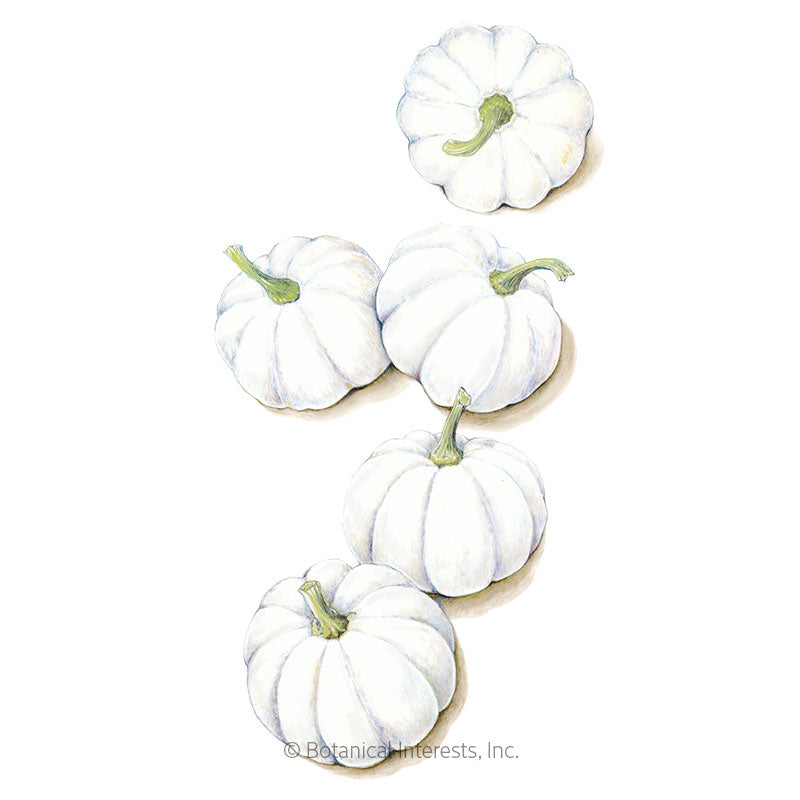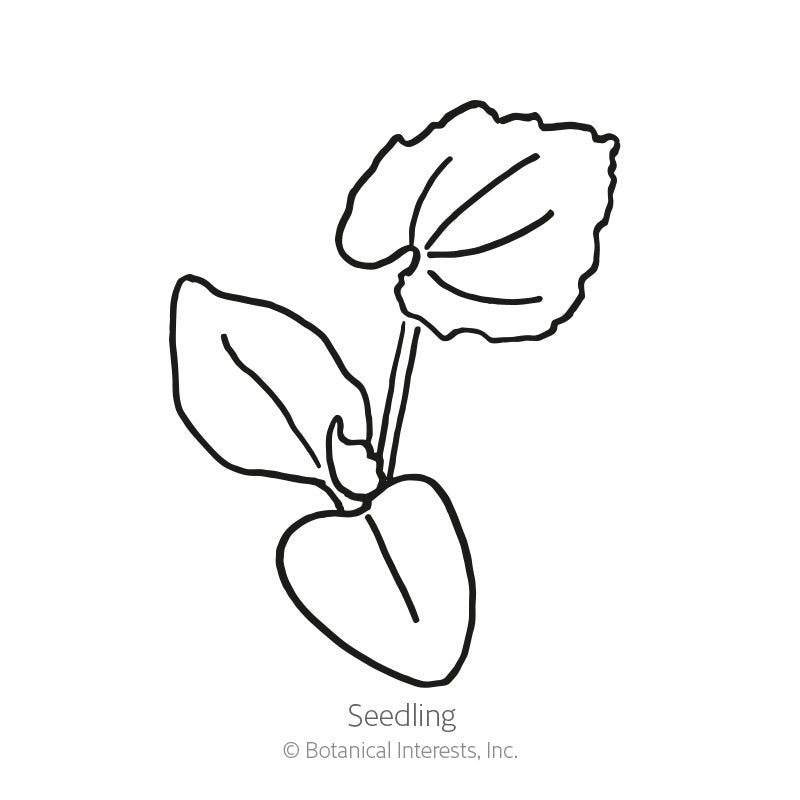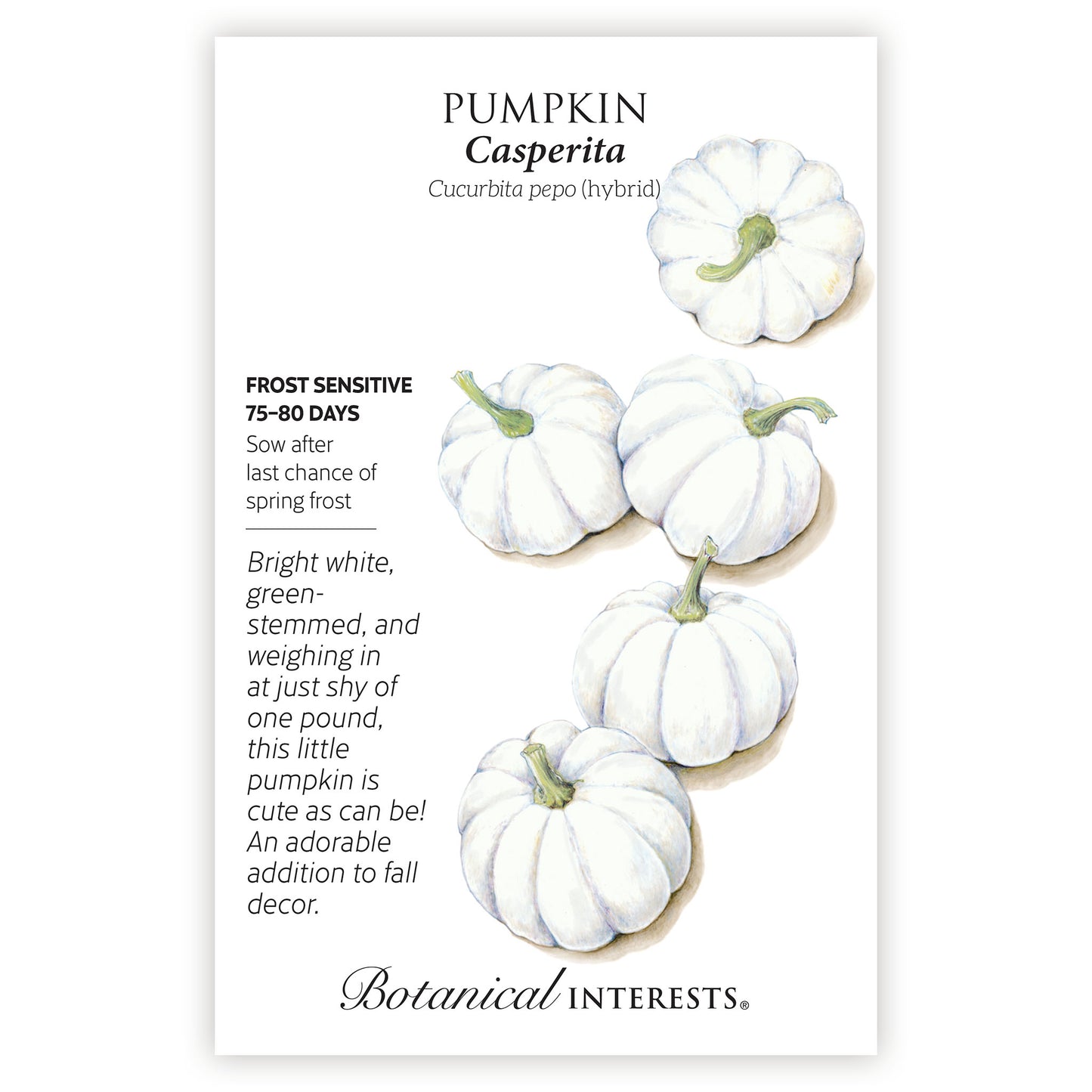


- Variety Info
- Sowing Info
- Growing Info
- Learn More
Variety Info
Days to Maturity: 75 – 80 days
Family: Cucurbitaceae
Type: Pumpkin, Winter Squash (Learn more)
Native: Southern United States and Mexico
Hardiness: Frost-sensitive annual
Exposure: Full sun
Plant Dimensions: 6'–8' vines
Variety Info: Extra-small, white, round pumpkin; 4"–4 ½" diameter.
Attributes: Powdery Mildew Resistant, Watermelon Mosaic Virus Resistant, Frost Sensitive

Sowing Info
When to Sow Outside: RECOMMENDED. 2 to 4 weeks after your average last frost date, and when soil temperature is 70°–90°F.
When to Start Inside: Not recommended except in very short growing seasons, 2 to 4 weeks before your average last frost date. Sow in biodegradable pots that can be planted directly in the ground. Transplant after your average last frost date, when weather is warm and settled.
Days to Emerge: 7–14 days
Seed Depth: 1"
Seed Spacing: 2–3 seeds per mound
Row Spacing: 4' – 5'
Thinning: When several leaves, thin to 1 –2 per mound
Your hardiness zone is
Growing Info
Harvesting: Harvest pumpkins before the first fall frost, and when foliage has begun to dry out. Cut stem with a knife, leaving 3"–4" of stem on the pumpkin. Do not hold the pumpkin by the stem; if stem attachment gets broken, or any part of the pumpkin bruises, the pumpkin may rot. Brush off any dirt or leaves. Ideally, cure at 80°-85°F and 80–85% humidity or a warm, sunny spot with good air circulation for 1 to 2 weeks before eating or storage. Do not allow harvested fruit to get wet.




